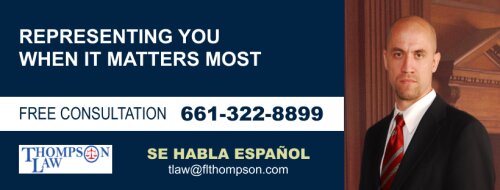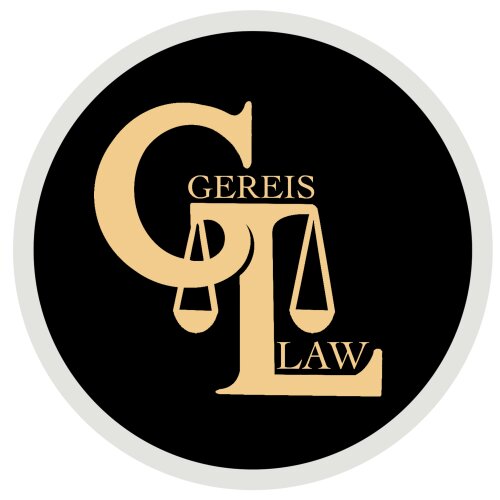Best Juvenile Law Lawyers in Bakersfield
Share your needs with us, get contacted by law firms.
Free. Takes 2 min.
List of the best lawyers in Bakersfield, United States
About Juvenile Law in Bakersfield, United States
Juvenile law in Bakersfield, California, centers on issues involving minors under 18 years old who become involved with the justice system. This legal field covers both criminal offenses committed by juveniles (delinquency cases) and matters related to the welfare of children such as dependency proceedings where a minor may have been abused, neglected, or needs care and protection. The juvenile justice system aims to rehabilitate rather than punish young people, and proceedings are often more informal than adult court processes. However, juvenile law is complex, and the outcomes can significantly affect a young person's future regarding education, record, and family relationships.
Why You May Need a Lawyer
There are several situations where you might need a lawyer specializing in juvenile law in Bakersfield:
- Your child has been arrested or cited for a criminal offense, such as vandalism, drug possession, theft, or assault.
- The Juvenile Court is considering removing your child from your home due to allegations of abuse or neglect.
- You are facing an investigation from Child Protective Services (CPS).
- Your child is in trouble at school and facing expulsion or suspension due to conduct that could also result in juvenile charges.
- There are questions about the expungement or sealing of your child's juvenile record.
- Your family needs help navigating visitation, custody, or guardianship issues connected to child welfare cases.
Legal representation ensures that the rights of both the child and the parents are protected throughout the juvenile justice process, helping families understand their options and defending the best interests of the minor.
Local Laws Overview
Bakersfield follows California state laws regarding juvenile justice, but the application of these laws happens at the county level through Kern County courts and agencies. Key points relevant to juvenile law in Bakersfield include:
- Juvenile Delinquency Proceedings: Most offenses committed by minors are handled in the Juvenile Court, with the goal of rehabilitation. In certain serious cases, a minor 16 years or older may be tried as an adult.
- Juvenile Dependency Cases: If a child is believed to be a victim of abuse or neglect, CPS can seek court intervention, which may result in the child being placed in foster care or under court supervision.
- Sealing Juvenile Records: Many juvenile records are eligible to be sealed upon reaching adulthood, but there are eligibility criteria and procedural steps that must be followed.
- Detention Hearings: When a minor is arrested and detained, a hearing must be held promptly to determine if the child should remain in custody or be released to a parent or guardian.
- Parental Rights: Parents have the right to notice of proceedings, attend hearings, and be represented in dependency cases, but may risk losing custody or parental rights in severe situations.
- Right to Counsel: Both minors and their parents are generally entitled to have legal representation during juvenile court proceedings.
- School Discipline and the Law: School incidents that may lead to expulsion or criminal charges often involve the juvenile justice system and should be taken seriously.
Frequently Asked Questions
What types of cases are handled in Juvenile Court in Bakersfield?
Juvenile Court in Bakersfield addresses two main types of cases: delinquency cases, which involve minors accused of criminal offenses, and dependency cases, which handle matters where a child is alleged to be abused, neglected, or in need of court intervention.
Can a minor be tried as an adult in Bakersfield?
Yes, in certain serious cases such as violent felonies, a minor age 16 or older can be tried as an adult. However, this is not common and generally requires a transfer hearing in Juvenile Court.
What rights do my child and I have during juvenile proceedings?
Both the minor and their legal guardians have rights including the right to counsel, the right to be present during hearings, the right to notice of all proceedings, and the right to present evidence and witnesses.
What is the role of Child Protective Services in Bakersfield?
Child Protective Services investigates reports of child abuse or neglect. If CPS believes a child is at risk, they can initiate court proceedings that may result in services, family reunification, or removal of the child from the home.
How does detention work for juveniles?
If a minor is arrested, a detention hearing must be held within a few days to decide whether the minor will stay in custody or be released to their family. The goal is to balance public safety and the best interests of the child.
Can juvenile records be sealed?
Many juvenile records in California, including Bakersfield, can be sealed upon petitioning the court once the minor reaches adulthood and meets eligibility requirements. Sealing records removes them from public view and can help with future opportunities.
What should I do if CPS contacts me?
Contact a lawyer immediately. Speak with CPS but remember you and your child have rights, including the right to an attorney. Legal representation can help ensure you do not say anything that may be misinterpreted.
How do school disciplinary actions relate to juvenile law?
Incidents at school, such as fights or substance possession, may result in both school discipline and involvement with the juvenile justice system. Legal representation can help navigate both school hearings and court proceedings.
What happens during a dependency case?
The court investigates the allegations of abuse or neglect. If substantiated, the court may order services, supervision, or remove the child from the home until it is deemed safe for return. Parents have the right to participate in the process and be represented.
How can a lawyer help in juvenile cases?
A lawyer defends the rights of the child and family, explains legal options, represents you in court, challenges weak evidence, negotiates with prosecutors or child welfare agencies, and works for the best possible outcome.
Additional Resources
For those in Bakersfield seeking more information or assistance in juvenile law matters, the following resources can be helpful:
- Kern County Juvenile Court - Handles all juvenile delinquency and dependency cases in the region.
- Kern County Public Defender's Office - Provides legal representation for minors and parents who cannot afford private attorneys.
- Child Protective Services (Kern County Human Services) - For matters involving allegations of abuse, neglect, or child welfare.
- Bakersfield Police Department Juvenile Division - Offers guidance related to youth offenses, diversion, and the juvenile justice process.
- California Courts Self-Help Center - Produces general information about juvenile court proceedings and rights.
- Legal Aid organizations in Bakersfield - Offer free or reduced cost legal services for qualifying families and minors.
- School District Family Resource Centers - Help families deal with school-related conduct and disciplinary issues that may overlap with juvenile law.
Next Steps
If you or your child are facing a juvenile law issue in Bakersfield, consider taking the following steps:
- Do not delay in seeking legal advice. Early representation can make a significant difference in outcome.
- Contact a lawyer with experience in juvenile law. If cost is a concern, reach out to the Kern County Public Defender or local legal aid groups.
- Gather and organize all documents related to your case, such as police reports, court notices, or school disciplinary records.
- Maintain communication with your legal representative and attend all scheduled hearings or meetings.
- If you are contacted by CPS or law enforcement, exercise your right to have an attorney present before answering in-depth questions.
- Take care to follow all court orders and recommendations, as cooperation can positively impact your case.
Navigating juvenile law can be intimidating, but with the right support and information, you can better protect your family's interests and the well-being of your child.
Lawzana helps you find the best lawyers and law firms in Bakersfield through a curated and pre-screened list of qualified legal professionals. Our platform offers rankings and detailed profiles of attorneys and law firms, allowing you to compare based on practice areas, including Juvenile Law, experience, and client feedback.
Each profile includes a description of the firm's areas of practice, client reviews, team members and partners, year of establishment, spoken languages, office locations, contact information, social media presence, and any published articles or resources. Most firms on our platform speak English and are experienced in both local and international legal matters.
Get a quote from top-rated law firms in Bakersfield, United States — quickly, securely, and without unnecessary hassle.
Disclaimer:
The information provided on this page is for general informational purposes only and does not constitute legal advice. While we strive to ensure the accuracy and relevance of the content, legal information may change over time, and interpretations of the law can vary. You should always consult with a qualified legal professional for advice specific to your situation.
We disclaim all liability for actions taken or not taken based on the content of this page. If you believe any information is incorrect or outdated, please contact us, and we will review and update it where appropriate.









